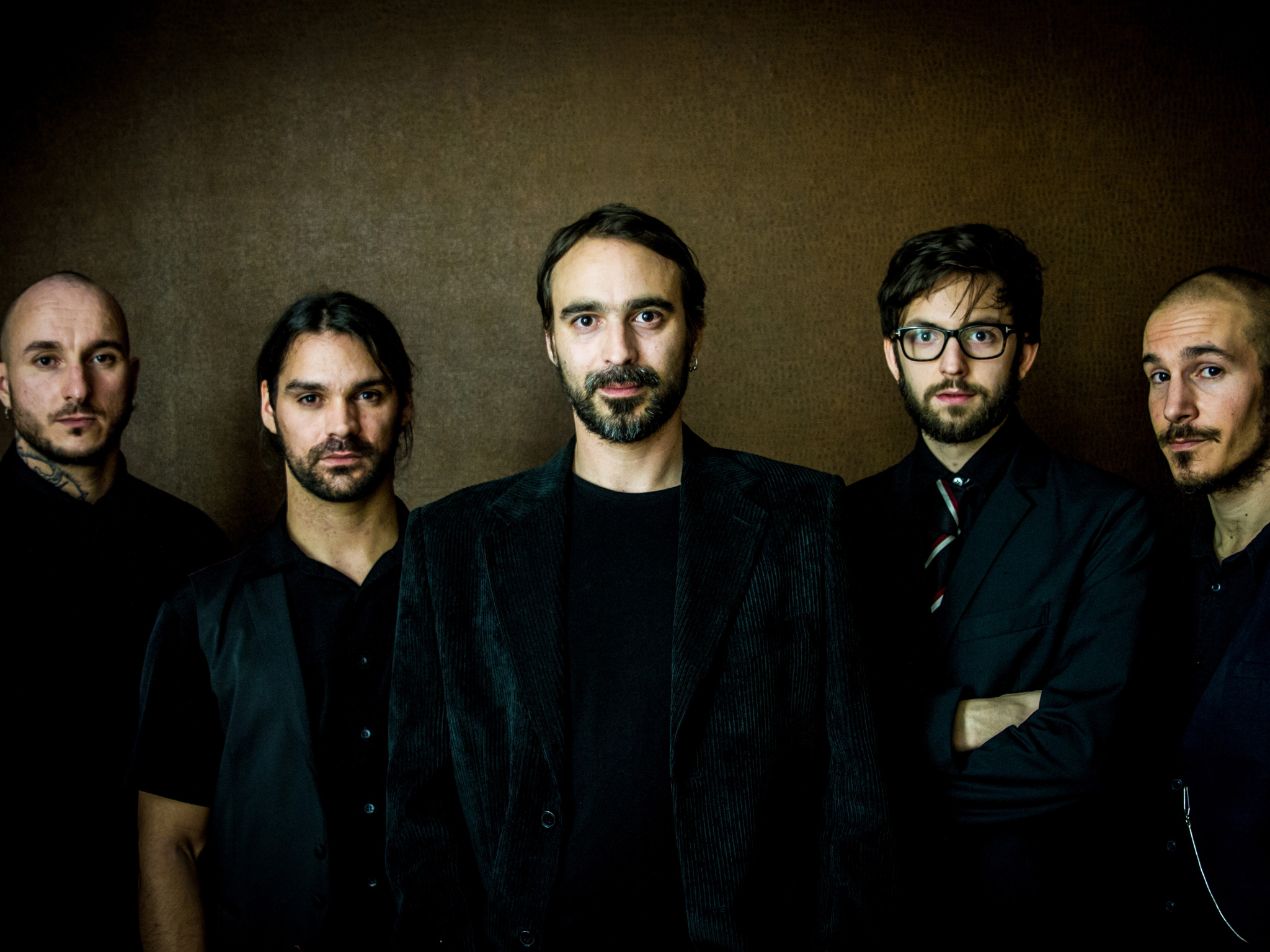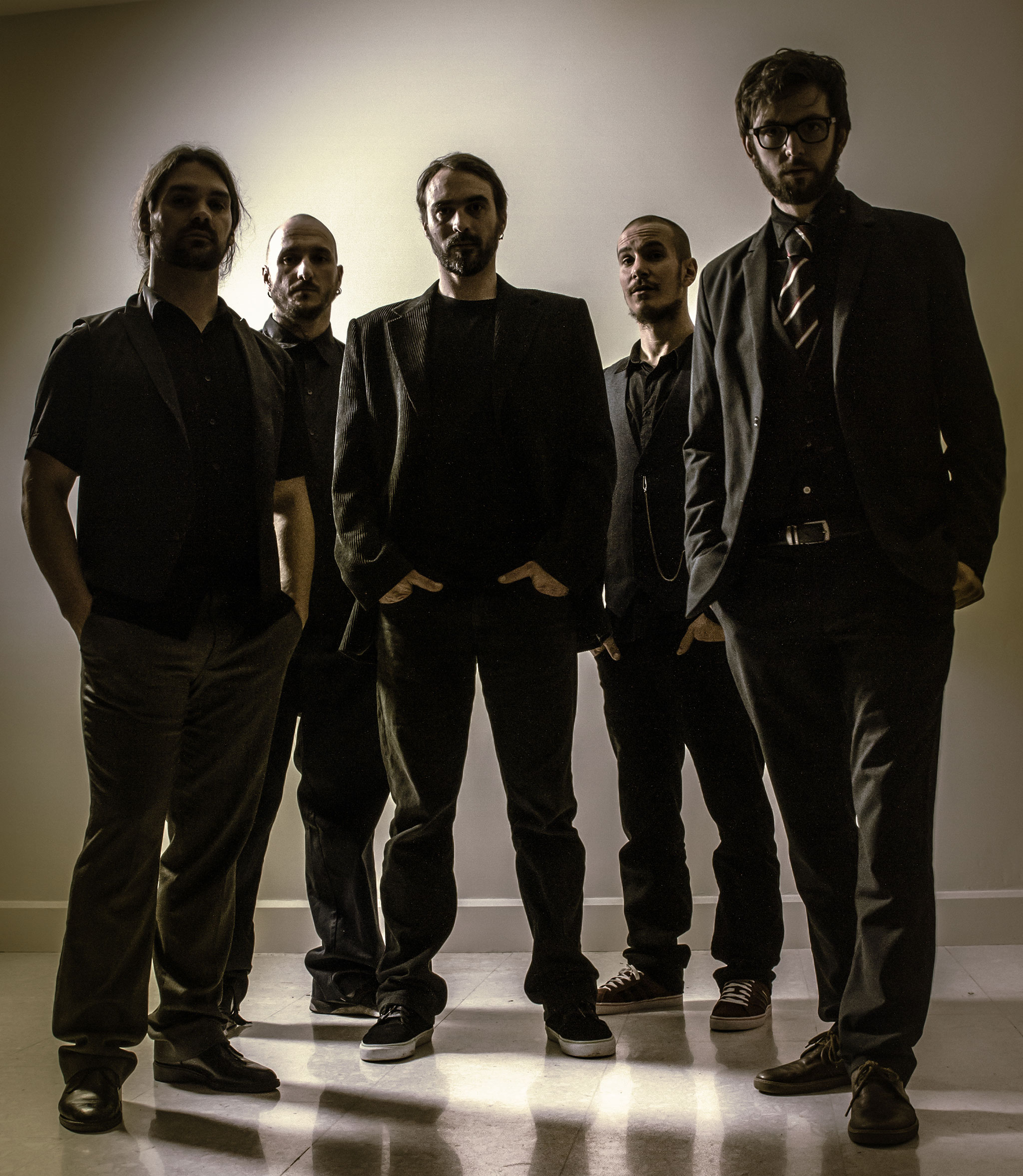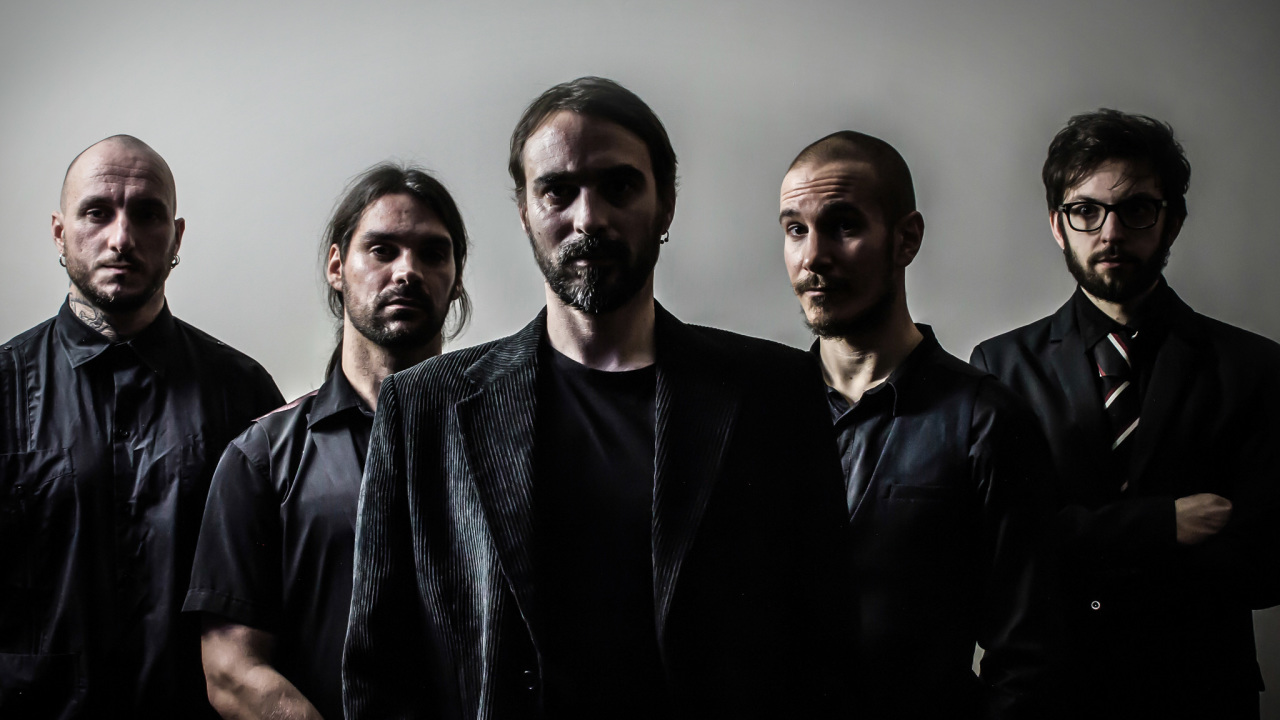We’re all in our thirties now and prog is the music we’ve always loved, so this is where we are,” affirms Klone’s founder and guitarist Guillaume Bernard, discussing their latest album Here Comes The Sun. The band’s sixth release has placed the Frenchmen firmly in the prog rock camp after 15 years of musical experimentation within the post-rock and prog metal genres.
Originally from Poitiers in the north of France, Klone released their first album Duplicate in 2004. It’s a powerful debut, filled with heavy riffs and growling vocals evoking similarities to Pantera’s groovy guitar sound and fellow French proggers Gojira’s manipulations of tempo. Klone toured with Gojira in 2012.
“At first we started playing mainly metal, but then our influences became more grunge, especially on our first album with Yann,” explains Bernard on their musical evolution. Current singer Yann Ligner joined Klone after Duplicate’s release, and guided the band’s previously aggressive tone towards a more melodic path, with his powerful clean vocals. Now, over 10 years later, Here Comes The Sun is an album with echoes of Porcupine Tree and features a saxophone, a harp and even a Chinese flute – yep, they’ve definitely gone prog.
It’s unsurprising, then, that Klone have found influence from another notable metal band turned prog: Opeth. “I always agree when people compare us to Opeth,” says Bernard. “The album Damnation influenced me a great deal and I was really pleased the day I organised for them to play a concert in my hometown of Chateauroux. It was great meeting them and talking with them. For me, those first albums are a musical benchmark, in fact more so than their latest ones.”

The guitarist continues, explaining that he wrote all of the songs for Here Comes The Sun on an acoustic guitar, including the heavier parts, which allowed the band to further rediscover their softer prog side on this latest album: “After a while I just realised that it made sense to go back to the original instrument I was using in the first place,” Bernard explains.
“I had set aside some songs for the album, but then when it came down to it, we wrote 90 percent of the album from fresh and only used one of the songs written before,” he continues on the album’s creation. “We needed excitement and innovation.”
Klone certainly don’t shy away from experimentation, as they often feature unusual cover songs on their albums; they covered Björk’s Army Of Me on 2010’s Black Days, and their live performance of this prog metal version garnered them positive reviews from the French music press after they belted it out to a stunned crowd one rainy morning at Hellfest in 2011. Continuing this, Here Comes The Sun features a notable cover of Summertime, the lullaby song written in the 1930s by George Gershwin and famously sung by Colin Blunstone on The Zombies’ debut album.

When it comes to their original material, Here Comes The Sun is their most mature album so far. Bernard explains, “We had so many ideas while we were writing this album and for the first time ever, we didn’t doubt ourselves or what we were doing. Someone once compared this album to a museum in which each song is like discovering a new painting. We wanted to create a journey and a strong link to the duality of the sun.”
While Bernard admits that the album title is a nod to the Beatles song, Klone’s sun represents something a lot darker. “The sun can give life and it can give death. It can give you cancer or make plants grow. Each song on the album shows another side to the sun. Gone Up In Flames and The Drifter are full of light, whereas The Last Experience is rather shady, representing a full on post-rock apocalyptic atmosphere.” Looks like they haven’t lost the darkness of their metal roots just yet.
Here Comes The Sun is out now on Pelagic. See http://www.facebook.com/KLONEBAND for more information.

